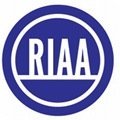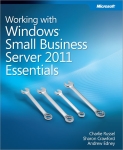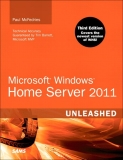Do you have copywritten music stored on WHS? Then the RIAA may soon visit you!

MyHomeServer.com reports that if you have copywritten digital music files on a shared folder then the RIAA may soon visit you. The article states:
“So, warning to those folks that plan on sharing files and folders via their home server…Beware, the RIAA could be making a visit to your home server soon to look for copywritten material! Always password protect any shares that contain copywritten material!”
Another article posted at PC World by author Travis Hudson also had this to say:
“The RIAA believes that the act of making copyrighted material available via a “shared folder” is enough to constitute the “right of distribution.” In other words, putting copyrighted material in a shared folder is just as bad as actually sharing it with another individual.”
You have been WARNED!
Share this WHS Article with Others:




I think that the article is being quoted a bit out of context. The original article by PC World raises the question of whether or not the RIAA includes the broad definition of “shared folder” when it uses that term in the context of a Peer to Peer file sharing case. Under that context, the shared folder would represent the KaZaA shared folder, which is made publicly available, and searchable.
In the case of a windows home server, shares on your private network are not able to be probed by the RIAA, nor are they being made publicly available. If you are hosting every one of your music files on a unprotected public web share, then you are blatantly providing public access. It is this public access, as they phrase it the “right of distribution,” that they take issue with, and that they can detect.
Historically, copyright originated only in the last few centuries. Creativity flourished well before copyright existed.
The RIAA isn’t the law, they just hire lots of attorneys, lobby for new legislation, sue students, even dead individuals with outrageous fines, such as $220,000 dollars for offering 24 songs.
You don’t even need to prove anything, like who the end users was, just some PC IP Address does the trick. You don’t need to actually establish how downloaded what you offered, as 100% complete or just a fraction…
And it doesn’t matter, that these works of art, if you can call them art, was created NOT by the RIAA, but some other individual/s whom’s work of art, innovation or creativity was mass produced and distributed by the RIAA whom profits above all else.
Shouldn’t the innovation, work of art and creativity reward the creator, innovator and artist foremost, to which then society benefits and NOT some monoploy?
RIAA has NO RIGHT to deny us end users where we keep and store our files. If someone else does the crime to steal copyright, their doing it.
Why should the RIAA make it a crime for WHS owners whom did NOT steal?
It’s okay to distribute music over the radio to the public for FREE… it’s okay to copy copyright material at the library, but just about everything, even checking it out, sharing it with your family at home, and friends, but if anyone even thinks to locate their data on a shared folder, it’s off with our heads?
That’s liek saying, we should have banks, because it allows criminals to steal money from the vault.
All copyright does is deny society their benefit to build upon prior innovation, locking out the poor, keeping the rich wealthy…
Fair use is a copyright principle based on the belief that the public is entitled to freely use portions of copyrighted materials for purposes of commentary and criticism. For example, if you wish to criticize a novelist, you should have the freedom to quote a portion of the novelist’s work without asking permission.
Major entertainment companies are using “digital rights management,” or DRM (aka content or copy protection), to lock up your digital media content. These DRM technologies interfering with consumers’ lawful use of music, movies, and other copyrighted works and are invading users’ privacy and creating severe security vulnerabilities in computers.
How can DRM identify “fair use” of copyrighted material?
“…The time and money we spend on patent filings, prosecution, and maintenance, litigation and licensing could be better spent on product development and research leading to more innovation…” – Robert Barr (Cisco Systems Intellectual Property Department) 2002
“If people had understood how patents would be granted when most of today’s ideas were invented and had taken out patents, the industry would be at a complete standstill today…The solution is patenting as much as we can. A future startup with no patents of its own will be forced to pay whatever price the giants choose to impose. That price might be high. Established companies have an interest in excluding future competitors.” – Bill Gates 1991
The vast majority of copyrighted works is owned by a relatively small group of large conglomerates. These mega-industries create, invent or produce nothing at all, yet demand that artists sign over all rights to their works to them [Recording Industry Association of America, Motion Picture Association of America], just for the privilege of having their works distributed.
Creativity has come to a standstill in the United States for those who wish to work within, and benefit from, the confines of the law. Legitimate creative derivative works are now smothered by the excessive terms, restrictions and punishments of their copyright system.
Where does an algorithm end and a patentable invention begin?
How much variation distinguishes one idea from another?
Well, HVACengi nailed the topic of this thread. Nuff said…..
WHS is a home server, right? Thus what is the purpose of a server but to share data, files and information. How will you and everyone else use a server?
The RIAA doesn’t want everyone else to share anything they monopolize, just like MPAA and if you think about this, that also includes Microsoft. Microsoft because it also has an official policy to deny even family members to share applications, such as Office 2007. Meaning, student editions are NOT to be used by parents, if you had bothered to check their EULA. It’s obviously an “outrage” but this is their rules, set by law.
In addition, Windows isn’t allowed to be installed to family computers, it’s installed to a device only. Meaning once again the family members have NO RIGHTS to share this Windows operating system, especially when installing to an external mobile device such as an USB hard drive.
Who thinks individuals using a server, isn’t going to distribute, share, access copyrighted information? If only among family members, friends and relatives? The WHS is connected to the Internet, which is a world connected distribution channel…
Email, FTP, P2P and now WHS… Just as vinyl records where shared, cassette tapes, DAT tapes, 8-Track, CD, DVD, Blue-Ray disc continue to be shared among the members of the society and among different cultures around the world…
Public libraries certain allow copyrighted material to be shared, access and distributed, even copied by the public…
Everyone is sharing… CNN over broadcast networks…
RIAA by mass producing and mass distributing the works of other artist…
It’s human nature for individuals to share, as their a social species in general. Everyone living in a civilization MUST share to function…
If individuals didn’t share, then nobody would speak the same language, as nobody would been able to teach and share this information… which is used here to communicate to everyone else…
AFZAL Got it best! Woot! Woot! Woot!
So does this mean that if I have my server set up with my own account and access through my homespace page that only I have access to and store my legally purchased music on the server, I’m breaking the law?
DO THEY have the ability to scan the contents of my server without my knowledge or permission if they don’t have the account login or password??
What kind of privacy have I signed away to have an internet accessible web storage device?
Hi all,
Lots of responses. Yes I agree the original poster posted this out of context, because your music etc stored on WHS would need a password to be got at and although the Shared Folders referened are P2P ones could easily be unprotected NAS shares also.
Good debate guys.
Hahahaha, what a joke. Like anyone would care. RIAA are loosers.